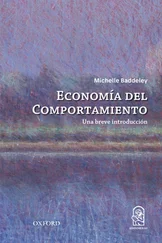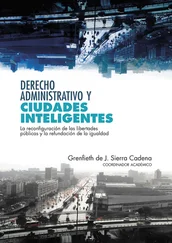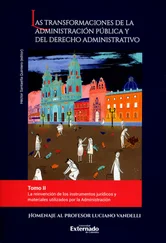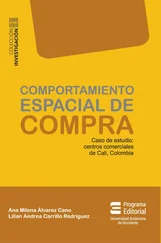SENT, E.M. (2000).Herbert A. Simon as a Cyborg Scientist. Perspective on Science , Vol. 8 (4): 380:406.
SHAFRITZ, J. & OTT, S. (EDS.). (1980).Classics of Organization Theory. Brooks/Cole, Pacific Grove. CA (Segunda Edición) Chicago Dorsey Press, 1986. Edición consultada: Tercera Edición, Brooks/Cole, Pacific Grove, CA., 1992.
SHAFRITZ, J., OTT, S. & JANG, Y. (EDS.). (2007).Classics of Organization Theory. Wadsworth Publishing, 6ª Edition, N.Y.
SHANNON, C. (1948).A Mathematical Theory of Communications. Bell System Technical Journal, Vol. 27 (July/October): 379:423.
SHANNON, C. & WEAVER, W. (1949).The Mathematical Theory of Communications. University of Illinois Press, Urbana, IL.
SHAW, J.C., NEWELL, A., SIMON, H.A. & ELLIS, T.O. (1959).A command structure for complex information processing. Proceedings of the Western Joint Computer Conference: 119-128. Published by the American Institute of Electrical Engineers.
SIMON, HERBERT A.
(2002.a).Science seeks parsimony, not simplicity. Searching for pattern in phenomena. En A. Zellner, H.A. Keuzenkamp & M. McAleer (Eds.) Simplicity, inference and modelling: Keeping it sophisticatedly simple : Capítulo 3. Cambridge University Press, Cambridge.
(2001.g).Complex systems: The Interplay of organizations and Markets in contemporary society. Computational & Mathematical Organization Theory nº 7 (2): 79-85.
(2000.n).An Economy of Markets or of Organizations. (Inédito). Akron University, April, 7th, 2000.
(2000.b.).Review to Barriers and bounds to Rationality :Essays on Economics Complexity and Dynamics Systems by Peter Albin. Reprinted: Structural Change and Economics Dynamic II , 243.253.
(1997.h).An empirically based microeconomics. Cambridge, UK: Cambridge University Press. ( The 1993 Mattioli lectures , Universitá Commerciale Luigi Bocconi, Milano).
(1997.e).The future of information systems. Annals of Operations Research , nº 71: 3-14.
(1997.d).Models of Bounded Rationality. Empirically Grounded Economic Reason (Vol. 3). Cambridge, MA: The MIT Press. (34)
(1997.a). Scientific approaches to the question of consciousness. En J.D. Cohen & J.W. Schooler (Eds.), Scientific approaches to consciousness : Capítulo 28. Mahwah, NJ: Erlbaum.
(1996.f).The Sciences of the Artificial (Tercera Edición). Cambridge, MA: The Free Press.
(1995.g).The information-processing theory of mind. American Psychologist nº 50 (7): 507-508. The 1993 American Psychological Association Award for Lifetime Contribution to Psychology Lecture.
(1995.e).Problem forming, problem finding, and problem solving in design. En A. Collen & W.W. Gasparski (Eds.), Design and systems: General applications of methodology , Vol. 3: 245-257. New Brunswick, NJ: Transaction Publishers.
(1995.b).Rationality in political behavior. Political Psychology nº 16: 45-63.
(1993.b).Decision Making: Rational, Nonrational, and Irracional. Educational Administration Quarterly , Vol. 29, nº 3 (August), pp. 392-411.
(1991.n).Organizations and Markets. Journal of Economic Perspectives , nº 5: 25-44.
(1991.a).Models of my Life. New York, NY: Basic Books.
(1983.c).Reason in Human Affairs. Stanford, CA: Stanford University Press.
(1981.f).The Sciences of the Artificial (Segunda Edición). The MIT Press. Cambridge, Mass.
(1977.a).The new science of management decision (rev. ed.). Englewood Cliffs, NJ: Prentice-Hall.
(1976.a).Administrative Behavior (Tercera Edición). New York, NY: The Free Press.
(1969.a).The Sciences of the Artificial. (The Karl Taylor Compton Lectures). Cambridge, MA: The MIT Press.
(1968.b).The future of information processing technology. Management Science, nº 14: 619-624.
(1960.b).The new science of management decision. New York, NY: Harper & Row.
(1957.c).Models of man: Social and Rational. New York, NY: Wiley.
(1957.a).Administrative Behavior (Segunda Edición). New York, NY: Macmillan.
(1956.a). Rational choice and the structure of the environment. Psychological Review nº 63: 129-138.
(1955.a).A behavioral model of rational choice. Quarterly Journal of Economics, nº 69: 99-118.
(1947). Administrative Behavior. New York, NY: Macmillan.
(1944).Decision-making and administrative organization . Public Administration Review, nº 4: 16-31.
STENE, E. (1940).An Approach to a Science of Administration. American Political Science Review nº 34: 1124-1137.
VON NEUMANN, J. (1928).Zur Theorie der Gesellshaftspiele. Mathematische Annalen . Versión consultada: John von Neumann Collected Works , Vol. VI: 1 a 26. Pergamon Press, Oxford, England, 1988.
VON NEUMANN, J. & MORGENSTERN, O. (1944).Theory of Games and Economic Behavior. Wiley, New York.
VON WOLFF, C. (1728).Philosophia rationalis sive Logica, methodo scientifica pertractata, eta ad usum scientiarum, atque vitae aptata. Praemittitur discursus praeliminaris de philosophia in genere. Frankfurt. Edición consultada en inglés: Preliminary Discourse on Philosophy in General. Traducción de R.J. Blackwell, Indianapolis, 1963.
WALD, A. (1950).Statistical Decision Functions .Wiley, New York.
WEICK, K.
(2009).Making Sense of the Organization: the impermanent organization. Vol. II. John Wiley & Son Ltd, NY, New York.
(2001).Making Sense of the Organization. Vol. I. John Wiley & Son Ltd. NY, New York.
(1996).Prepare your organization to fight fires. Harvard Business Review nº 74 (3): 143-148.
(1995).Sensemaking in Organizations (Foundations for Organizational Science). Thousand Oaks: Sage.
(1969).The Social Psychology of Organizing. McGraw-Hill, NY, New York.
WIENER, N. (1948).Cybernetics .Wiley, New York.
WITTGENSTEIN, L.
(1953). Philosophische Untersuchungen.(Póstumo) Versión traducida al inglés (Anscombe), incluyéndose el texto en alemán. G.E.M. Anscombe & Rhees (eds.). Blackwell, Oxford. Versión consultada: Investigaciones Filosóficas. ( En español y alemán), Editorial Altasa, Madrid, 1999.
(1921).Logisch-Philosophische Abhandlung . Annalen der Naturphilosophie XIV nº (3): 185-262. Edición consultada en español: Tractatus Logico-Philosophicus. Alianza, Madrid, 1987.
34. En el pie de página nº 11 de la cuarta edición en inglés por error se consignó el año 1996 como fecha de publicación, en lugar de 1997.
CAPÍTULO II
TEXTO ORIGINAL
CAPÍTULO II
ALGUNOS PROBLEMAS DE LA TEORÍA ADMINISTRATIVA
Dado que el presente volumen se aparta bastante de la forma en que se suelen presentar habitualmente los “principios de administración”, (1) tal vez deberíamos ofrecer alguna explicación de ese desvío y alguna descripción de los defectos de la teoría actual que hacen que sea necesario. Este capítulo emprenderá primero un examen crítico de los “principios” y pasará luego a una discusión acerca de cómo construir una teoría sólida sobre el comportamiento administrativo. Echa, por lo tanto, los cimientos metodológicos para los capítulos posteriores.
Читать дальше












